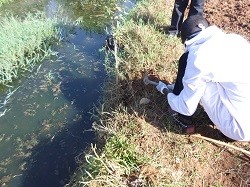Waste-to-energy innovation from Czech experts
The increasing amounts of waste generated can be effectively recycled by using waste coming from one industrial sector as raw material for another. Realising even a tiny portion of the benefits anticipated could motivate the transformation of waste treatment. The EU-funded project BIOWET(opens in new window) (Advanced biological waste-to-energy technologies) was launched to investigate natural processes to recover energy resources from a resource-constrained world. Scientists sought to optimise energy recovery from organic waste. Research centred on anaerobic digestion of solid waste, bio-hydrogen production from industrial wastewater and direct electricity production using sediment fuel cells. Because the cost and efficiency of electricity and heat production are highly dependent on the quality of produced biogas, scientists addressed this issue as well. The field is still immature, and therefore transfer of knowledge plays an important role in the development of new technology. BIOWET fostered the sharing of ideas and information among partners and to young and experienced researchers in this and related fields. An international summer school, a mini symposium and a workshop were organised in the United States. In addition to the many technical topics discussed was the very different approach to extracting energy from waste products adopted in the EU and the United States. In addition, short secondments of experienced researchers, nine from Europe to the United States and eight from the United States to Europe, were made possible within the project. Four early-stage researchers from the Czech Republic visited the University of Southern Florida in the United States as well. Developing efficient and cost-effective biotechnologies to produce biogas for electricity generation from waste would minimise the world's fossil-fuel-derived energy dependence. BIOWET pursued several options for harnessing renewable energy that are considered to be more beneficial than cultivating oil crops.







